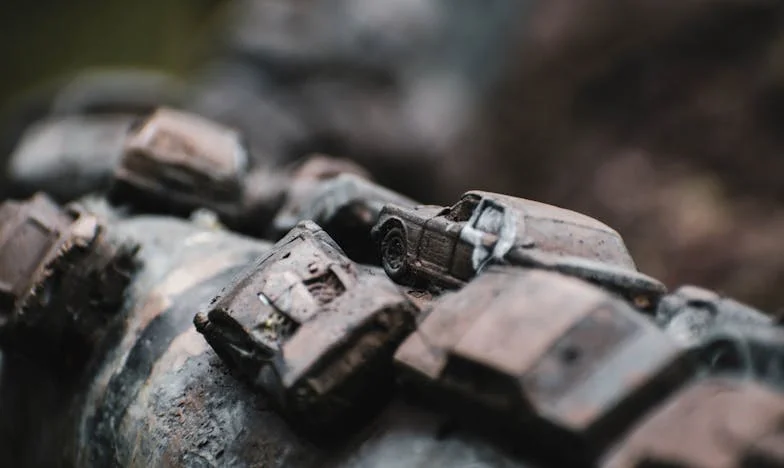Echoes of the Unspoken: A Daughter’s Search for Answers
“Why isn’t anyone calling 911?” My voice, small and desperate, was lost in the kitchen’s chaos. It was February 1995, snow blanketing our old farmhouse in rural Minnesota, making the world outside so quiet it was almost like the sky itself was holding its breath. My mother’s screams echoed down the narrow hallway. I remember clutching my older sister’s hand, feeling her nails dig into my palm. We were both trembling, the kind of trembling that starts in your bones and never fully leaves.
My mother had gone into labor in the middle of a blizzard. The nearest hospital was twenty miles away, and the roads were nearly impassable. Neighbors gathered in our living room, their faces pale, crossing themselves, whispering prayers. One of them, Mrs. Miller, kept wringing her hands. “There’s nothing we can do, honey. The doctor can’t get through this snow.”
But I didn’t understand. Why didn’t they try harder? Why didn’t someone, anyone, do more? The memory is a blur of adults arguing in hushed tones and my mother’s cries growing weaker. I remember the silence that followed—a silence more terrifying than any scream. My father stumbled out of the bedroom, face gray, eyes hollow. “Your mama’s gone,” he said, voice thick with something I couldn’t name then.
From that moment, everything changed. My father withdrew into himself, spending long hours in the barn, barely speaking to us. My oldest sister, Emily, tried to fill the gap, packing school lunches, brushing my hair, but she was only ten. The baby, Grace, survived the birth but was so fragile, her cries thin and uncertain. Our house filled with casseroles, people coming and going, but after a few weeks, even the neighbors faded away, leaving us behind with our grief and questions.
We grew up quick. By the time I was eight, I knew how to make dinner, shovel the walk, and keep Grace from crying too long. Emily and I would whisper at night, piecing together fragments of that night. “Do you think Mama hurt?” I’d ask. Emily would squeeze my hand, her voice steady: “She was brave. She wanted us to be brave, too.”
But the questions never left me. Why hadn’t anyone tried harder? Why didn’t my father drive her to the hospital, even if the roads were bad? Why didn’t someone call for help sooner? Sometimes, I’d stand in the field behind our house, scream into the corn, and wonder if anyone would ever answer back.
As I got older, the burden only grew heavier. In high school, I wrote an essay about rural healthcare and the women who died too young, their stories barely whispers in the wind. My teacher, Mrs. Carter, pulled me aside. “You write with anger,” she said, meeting my eyes. “Maybe you should write with hope.”
But hope felt impossible. My father and I barely spoke. When Grace started asking questions—”Why don’t I have any pictures of Mama? Why did she die?”—I had no answers. One night, I confronted my father in the barn, the smell of hay and old sorrow thick in the air.
“Why didn’t you take her to the hospital?” I asked, my voice shaking.
He didn’t look at me. He just kept fixing the tractor, hands trembling. “I tried. The truck wouldn’t start. By the time I found someone to help, it was too late. I’m sorry, Sarah.”
It wasn’t enough. Nothing ever was.
College was my escape. I left for Minneapolis, determined to never return. But the city was loud and lonely, and my grief followed me like a shadow. I started volunteering at a women’s clinic, listening to stories that sounded too much like my own. Women who fell through the cracks. Women who died because help was too far away, or no one thought to call.
One winter, Emily called. “Dad’s sick. Maybe you should come home.”
I came back to the farmhouse, the snow as deep as I remembered. My father, older and smaller, sat by the window, staring at the empty fields. We didn’t talk much, but one night I found him crying over an old photograph of my mother. He handed it to me, hands shaking.
“She was so strong,” he whispered. “I wish I could’ve saved her.”
I sat beside him, finally letting myself cry, too. For the first time, I realized how helpless he must have felt. How the silence in our home wasn’t just grief, but guilt and shame and the weight of all the things we couldn’t say.
Now, as I sit with Grace and Emily at the kitchen table, I see how we’ve carried our mother’s absence in different ways. Grace, always searching for connection; Emily, fierce and protective; me, angry and restless. We talk more now—about Mama, about that night, about how our community failed us and how we failed each other.
Sometimes, I wonder: How many other daughters are still screaming into the corn, waiting for someone to answer? How many families still carry the silence of a death no one wants to talk about? Would you have done anything differently if you’d been in our place?
